EU Tries Again

For those of you most familiar with the modus operandi of the EU institutions, this won’t come as much of a surprise. Back in March 2017, the Commission published the results of a public consultation on whether or not e-cigs should be subject to a tobacco-style excise.
Naturally, the overwhelming answer was no. With the largest group of respondents being individuals. Naturally, being the EU, they weren’t particularly satisfied with such a response and all went quiet. Only for them to produce yet another consultation asking the same questions.
I’d be willing to bet you know exactly how it turned out.
Thanks to Vapolitique for noticing the results had been published and for providing the link to said results.
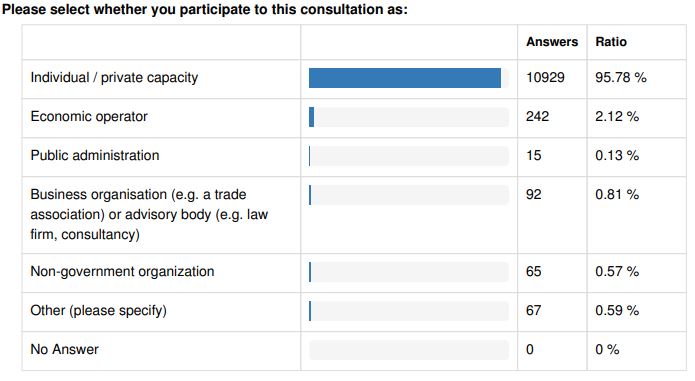 As you would expect, a large number of individuals - made up of vapers, smokers, snus users and interested individuals - responded to the consultation. 11,410 responses were recorded, and a whopping 95% of them came from individuals. No doubt the EU will consider a large number of responses to be the result of astroturfing or other such bollocks, which is probably one of the reasons why there was a second consultation.
As you would expect, a large number of individuals - made up of vapers, smokers, snus users and interested individuals - responded to the consultation. 11,410 responses were recorded, and a whopping 95% of them came from individuals. No doubt the EU will consider a large number of responses to be the result of astroturfing or other such bollocks, which is probably one of the reasons why there was a second consultation.
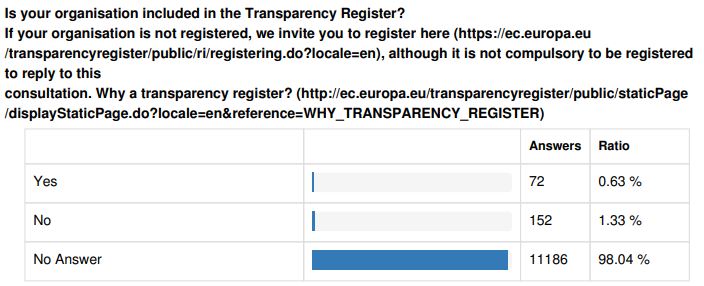
Given that there were a total of 481 organisations or other entities - such as NGOs - I find it rather unusual, though not entirely surprising, at the numbers in the transparency question. Only 72 responses claimed to be on the transparency register. Which is odd considering that Government bodies and NGO’s make up around 80 responses. Perhaps more.
Just like last time, the results on the question related to the excise level on cigarettes show some interesting figures:
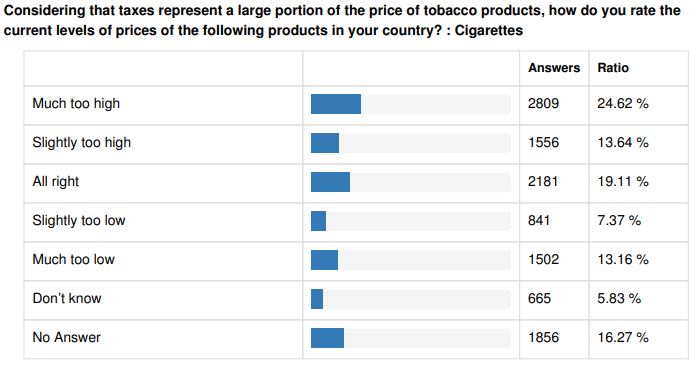
Out of 11,407 responses to this question (4365 or 38.27%), a large proportion thinks that taxes on normal cigarettes is much too high. I quite agree with that. While 2,343 think it is actually too low (20.54%). Less than a quarter, but you can bet that those are the “Public administration”, Governments and NGO’s saying that. No doubt the replies reflect the current taxation rate in the specific Member State.
What is rather concerning is the responses to whether or not less expensive products such as snus, e-cigs and heat-not-burn are all less expensive - albeit heat-not-burn is not as low-cost as e-cigs, and smokers switching to them are a problem as a result of high taxation on tobacco:
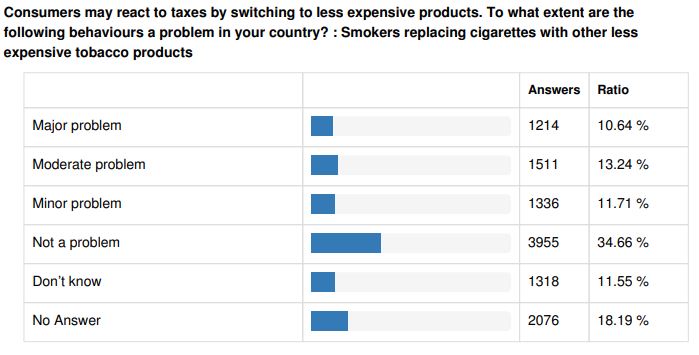
Between the various levels of “problem” and “not a problem” the replies were split - roughly 34% for each and, as shown above, 10% think that switching to cheaper products - be that cheaper tobacco brands (difficult due to the relatively level taxation playing field), illicit tobacco or a reduced risk product is a “major problem”. No doubt there’s some big-wig anti-thr types among that 10%. That question was a rather a broad church given that most reduced risk products fall under the “less expensive” product category, so the survey pointedly asked if smokers switching to e-cigarettes was a problem or not:
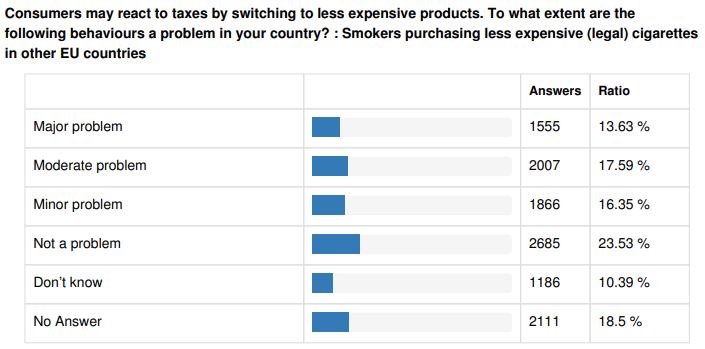
Strangely enough, the “not a problem” response here is a good 11 percentage points lower than the broad church generalisation of “less expensive”, while, of course, the “problem” replies were higher.
Naturally, a large number of replies insist that the main goals of EU legislation (with regards to the taxation of tobacco products) should “sufficiently protect public health”. ohmysides.gif
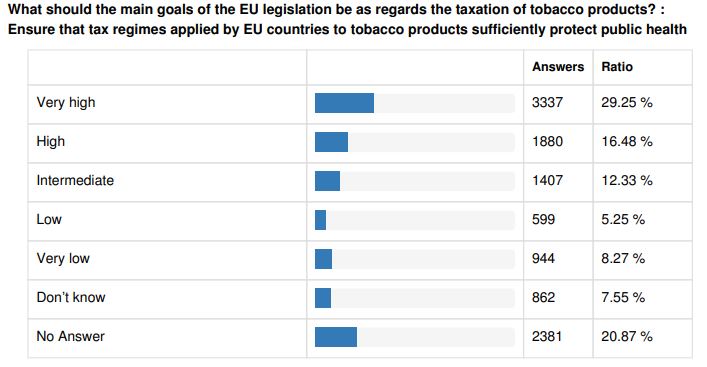
Of course, tax receipts aren’t really a concern here:
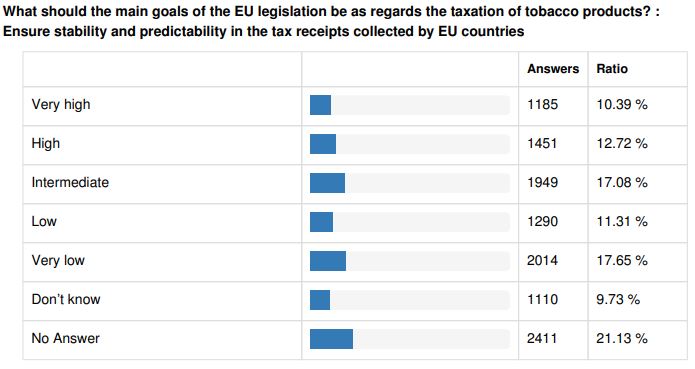
Of course, the EU is trying to make sure that everyone plays by the same rulebook so, they sought an answer on a fixed minimum amount for cigarettes:
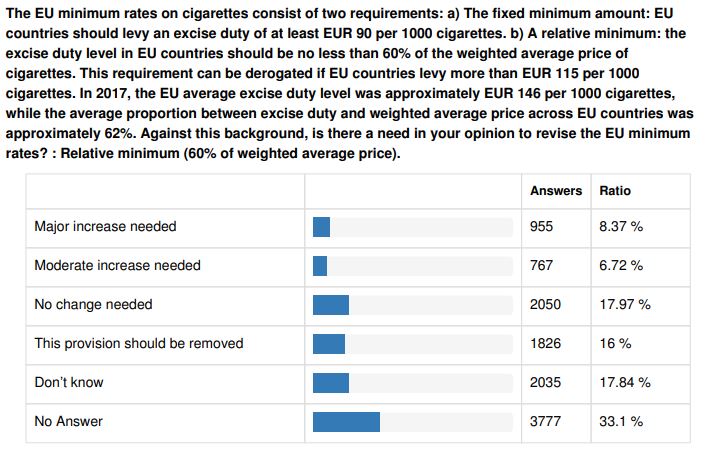
Nice to see some are saying that the provision for a minimum amount should be removed - which will be ignored, natch. Of course, applying taxation to a product that ‘public health’ want people to stop using has always had such a “good impact”, yet those in their ivory towers still believe that increasing taxes will have the effect they want:
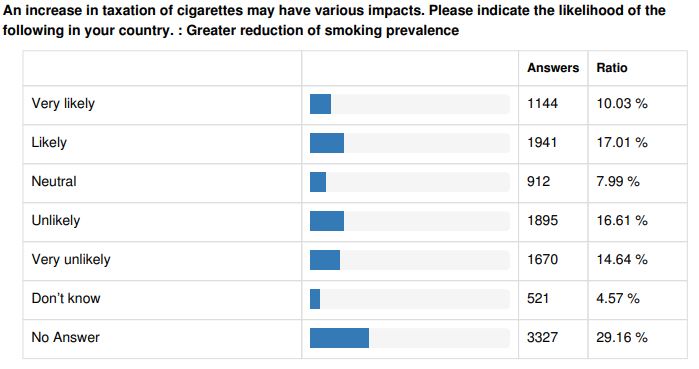
What really happens - in the real world that is - is that smokers who don’t want to stop will forgo other items. Which, as you can imagine, widens the “health inequality” that public health keeps banging on about. They really have no idea, do they?
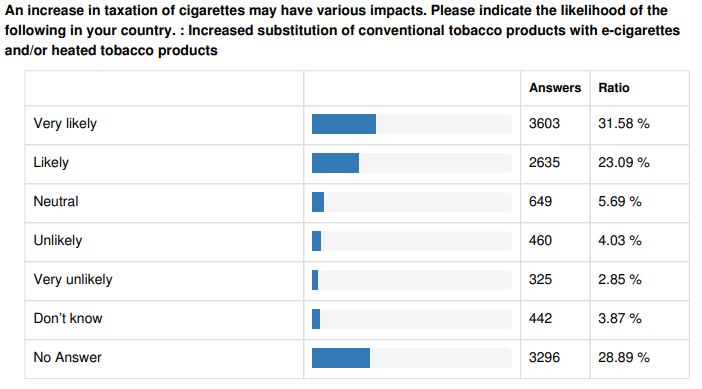
But they still believe that putting up the cost of a pack of smokes will “encourage” folk to switch to e-cigarettes (or other reduced risk products). I’m more on the “unlikely” side here. Just because a pack of smokes gets more expensive, doesn’t necessarily mean that the person will immediately switch to e-cigs. Instead, they’ll likely start buying cheaper brands, or maybe finding a more obscure source. Hello, black market!
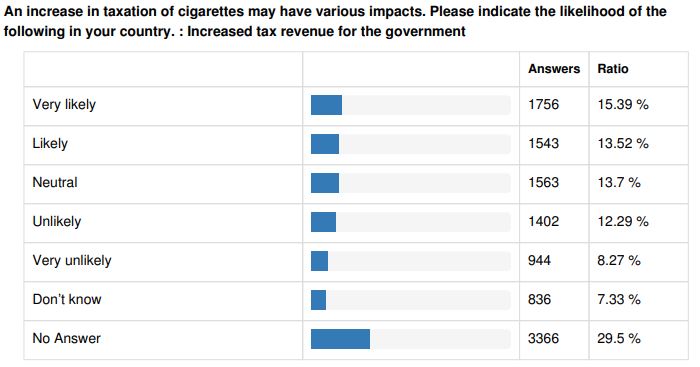
Just to prove that it really has never been about health, when asked if an increase in the tax rate would lead to an increase in revenue for the government, the majority of those that gave an answer clearly believe that it will bring in more cash for the government. You can’t have it both ways, people! If you expect the prevalence to decrease, you cannot expect an increase in tax revenue because there will be fewer smokers to generate the revenue. Idiots!
These are the people who don’t really know what smoking is:
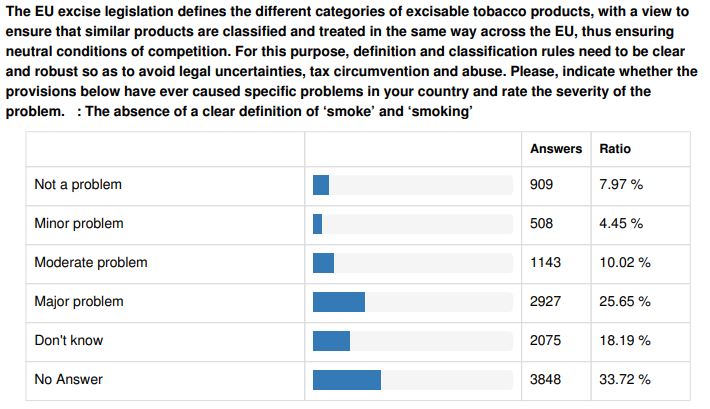
At least, not without a clear “definition” of the term. Let me help with that:
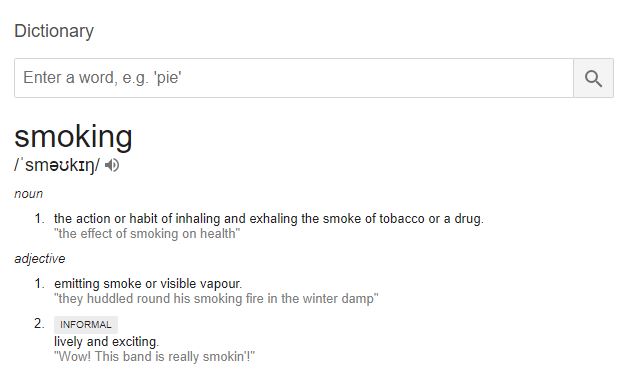
Although that definition could use a little work.
At least the overwhelming majority of replies agree that e-cigarettes are much less harmful than tobacco products:
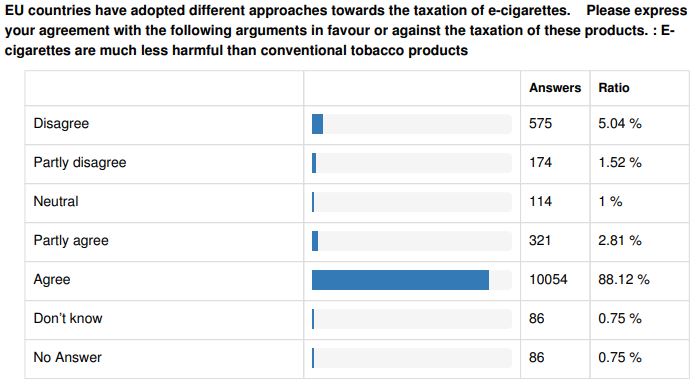
I’m just waiting for the rapid cries of “shills” and “astroturf” to come from Brussels.
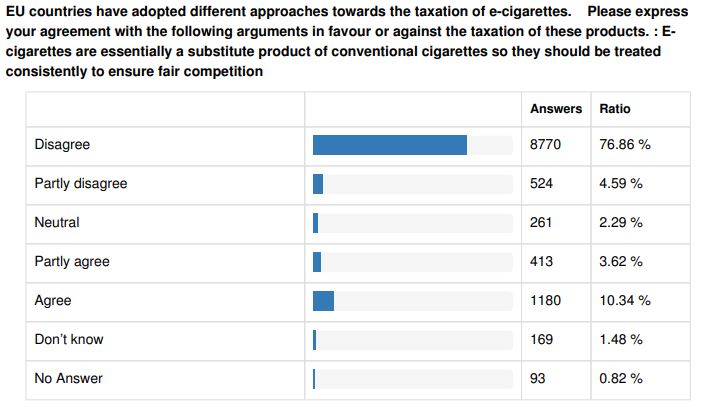
Just like last time, the vast majority of replies to the consultation quite clearly said “no” to a tax on e-cigarettes. Although, I can see the EU wriggling out of this one by saying “we only said they are treated consistently”. Except they explicitly asked, in the very next question, whether or not e-cigarettes should be subject to tobacco excise legislation full-stop:
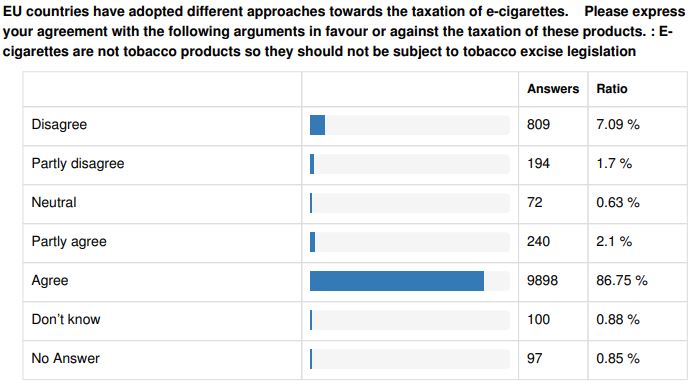
That’ll be a “no” from the consultation then. Yet they still want to try to “harmonise” e-cig taxation, just because:
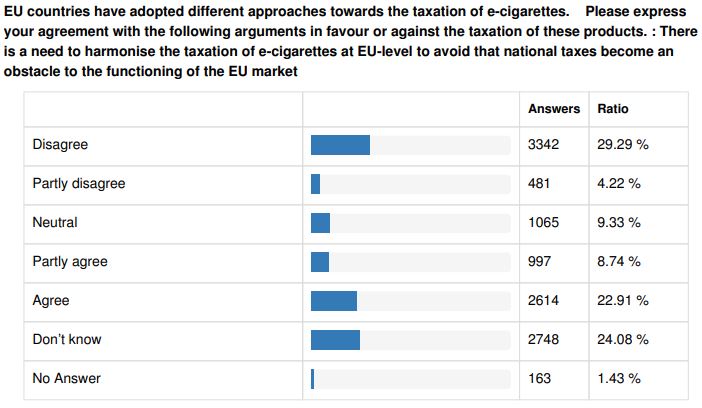
Once again, the EU is told - in no uncertain terms - that any kind of taxation on e-cigarettes will not go over well with the consumer. I highly doubt that they’ll listen. They never do.